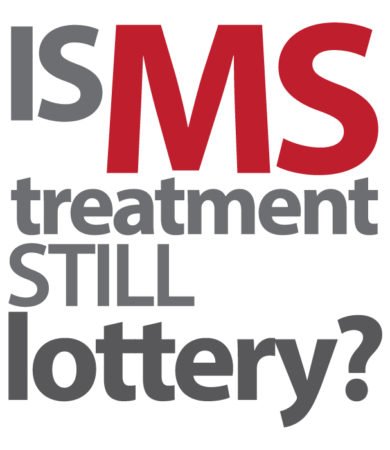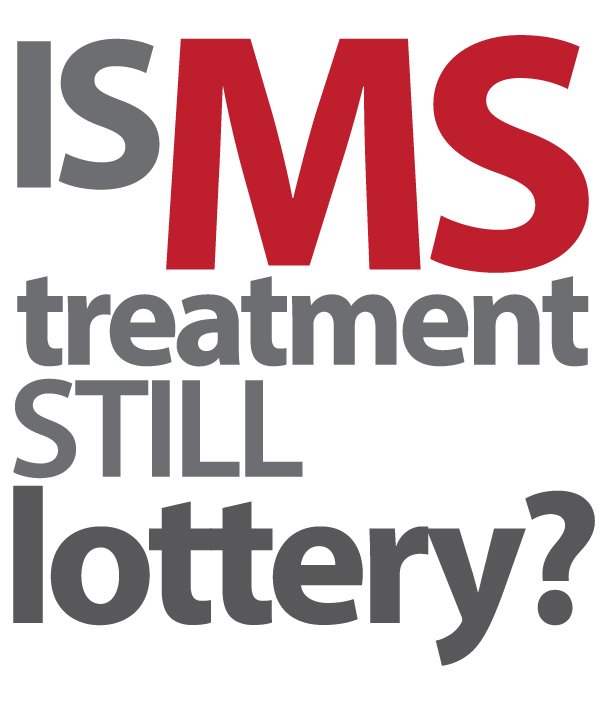
Croatia: fighting to end roadblocks for MS patients
14.12.2017
By: Tanja Malbasa, Project Manager, Association of Multiple Sclerosis Societies of Croatia
The Association of Multiple Sclerosis Societies of Croatia recently conducted a campaign entitled “Is MS treatment still lottery?“ to raise awareness and abolish the stigma on access to treatment for people living with MS. Currently, there are discriminatory criteria for MS patients that lead to inadequate and overdue drug-induced drug delivery. As a result, over 6500 people who have progressive and autoimmune diseases suffer. In fact, the Croatian Institute for Health Insurance for the Treatment of Multiple Sclerosis lags behind the rest of Europe. Through the campaign, we were able to speak out against the 3 discriminatory factors that MS patients face in Croatia.
- The first discriminating criterion is accessing treatment above 55 years.
We know that the onset of the disease is most common between the ages of 20 and 30 when it comes to relapsing remitting form of multiple sclerosis, but in the primary progressive form from which 10 to 15% of all patients are present, it is characterized by the beginning of the disease at a later stage. Patients 55 years and over are discriminated against in the right to treatment. To put it in perspective, none of the European guidelines has a condition for initiating treatment are set under age 55.
- Duration of the illness for at least 1 year.
The results of many studies show that early intervention is key to multiple sclerosis to stop further progression of MS. Studies have shown that treatment that begins at the stage of clinically isolated syndrome (CIS), the efficacy is between 40 and 60 percent in reducing relapse or worsening of the disease. If immunomodulatory treatment begins at the relapse stage, then its efficacy is only 30 percent. Hence, waiting and delaying the start of treatment reduces the chances of a good response to immunomodulatory treatment. For example, in Slovenia it is possible to treat high-strength CIS with a written explanation of neurological counseling.
- The third discriminating criterion is 2 treated relapses in 2 years
From practice, it is known that the course of MS is very unpredictable. It may happen that 2 relapses could occur in 6 months or 6 years. However, lack of relapse does not mean that the disease does not have its sub-clinical activity and progression, which can be recorded on MR findings or in some of the cognition tests or the motor of the lower and upper extremities. Cognitive changes and brain atrophy appear already in the CIS and continue during illness regardless of the clinical phenotype of MS.
Also, it could happen that a relapse patient is not recognized, especially at the onset of the disease and that the symptoms are withdrawn before the patient becomes a neurologist. This leaves the “demonstration material” for the approval of the treatment.
The beginning of the treatment for one or two years after the diagnosis essentially reduces the effectiveness of the treatment and is a major problem. If we start in the late stage of the disease, in the secondary progressive, then every DMT is ineffective.
A Positive Example in Slovenia:
In neighboring Slovenia, there are no limitations on treatment for age, and there are no criteria such as illness for at least one year or two relapses treated for two years to begin treatment. The criteria are solely based on the indications in the Summary of the Character Characteristics of each Drug.
Speaking out loud and clear
“Is MS Treatment Lottery?” campaign has been ongoing since September. Together with the campaign, we marked the Croatian National Day for Multiple Sclerosis with a press conference where we gave a strong statement against the Croatian Health Insurance Institute inadequate criteria for the treatment of multiple sclerosis. We discussed the campaign with the parliamentary representative of Ines Strenja Linić, the chairman of the Committee for Health and Social Policy of the Croatian Parliament.
The result of the was positive as we were able to secure support on the campaign implementation. Moreover, Strenja Linić expressed personal readiness to cooperate with the Alliance of Multiple Sclerosis Societies in order to change the overall environment for patients suffering from this disease. Dr Strenja Linić, in cooperation with the Alliance, also agreed to prepare a proposal for the Croatian Health Insurance Institute and the Ministry of Health to address the issues we highlighted. It was further estimated that it is necessary to do this as soon as possible and to analyze the costs and benefits of treating this disease in order to gain the knowledge of the benefits of timely treatment of multiple sclerosis to reduce the total cost of health and social welfare systems based on specific financial indicators.
The meeting became a platform for us to exchange views on the problems faced by MS patients. As such, the representatives of the alliance paid special attention to the discriminating criteria for the treatment of multiple sclerosis and the problems in rehabilitation and diagnosis of multiple sclerosis.

Additional Links:
You can find the campaign on our Facebook page and website: https://www.facebook.com/savezdrustavamshrvatske
You can also find Lori Schneider and the European MS Platform support to the campaign here: https://www.youtube.com/watch?v=mI3VNsB3M-8
The campaign also included video about Ivan, who received cure after 8 years here: https://www.youtube.com/watch?v=-X8vfRqKiAs
 Your Account
Your Account


